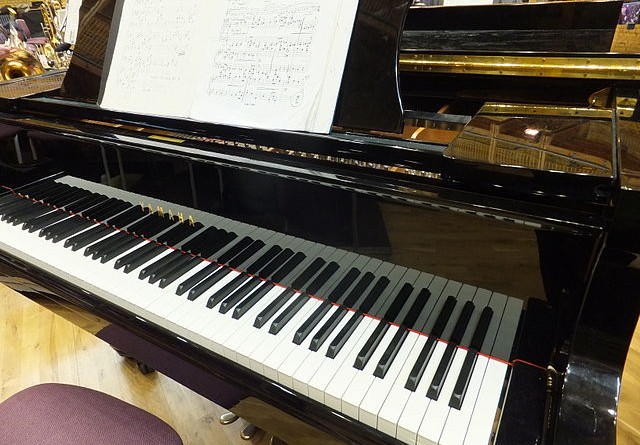The majestic sound of a grand piano can fill any room with elegance and artistic expression. However, like any intricate instrument, a grand piano requires regular maintenance to ensure its optimal performance and preserve its value. One essential aspect of this maintenance is professional piano tuning. Understanding the costs associated with tuning a grand piano is crucial for ensuring its longevity and musical integrity.

Image: www.costevaluation.com
Factors Influencing Tuning Costs
The cost of tuning a grand piano can vary depending on several factors, including:
- Geographic location: The cost of living and labor rates can affect tuning fees, with higher costs in larger metropolitan areas.
- Piano condition: A piano that has been neglected or rarely tuned may require more extensive work, increasing the tuning cost.
- Tuner’s experience: More experienced tuners with a strong reputation may charge higher fees.
- Piano size: Grand pianos come in various sizes, and tuning a larger piano with more strings naturally requires more time and effort.
- Tuning method: The method used to tune the piano, such as the traditional “aural” method or the more precise electronic tuning, can影响 the cost.
Average Tuning Costs
On average, the cost of tuning a grand piano can range from $80 to $300, with most homeowners paying between $120 and $200. However, factors mentioned above can influence these costs, and it’s always advisable to consult with a qualified piano tuner for an accurate quote specific to your piano’s needs.
When to Tune a Grand Piano
The frequency of tuning for a grand piano depends on several factors, including how often it is played, the environment it is kept in, and its overall condition. As a general guideline, professional piano tuners recommend tuning grand pianos twice a year, ideally in the spring and fall seasons when temperature and humidity changes are less drastic. However, pianos that are used frequently or in unstable environments may require more frequent tuning to maintain their performance.
Benefits of Regular Tuning
Regular tuning provides numerous benefits for your grand piano, including:
- Improved音质:Regular tuning ensures that each note is perfectly in tune, resulting in a more harmonious and pleasing sound.
- Extended lifespan: Regular tuning helps prevent the strings from becoming overstretched or loosened, reducing the chance of breakage and preserving the piano’s整体health.
- Maintenance of value: A well-maintained and regularly tuned grand piano retains its monetary value better than an untuned instrument.
Conclusion
Investing in professional grand piano tuning is crucial for maintaining the beauty and performance of this timeless instrument. The cost of tuning can vary depending on several factors, and consulting with a reputable tuner is recommended for an accurate quote. Regular tuning not only enhances the musical experience but also prolongs the life of your grand piano and protects its value. By prioritizing regular tuning, you can continue to enjoy the enchanting melodies and expressive sound that only a well-tuned grand piano can provide for years to come.

Image: paortiz-methdology1.blogspot.com
How Much Does It Cost To Tune A Grand Piano